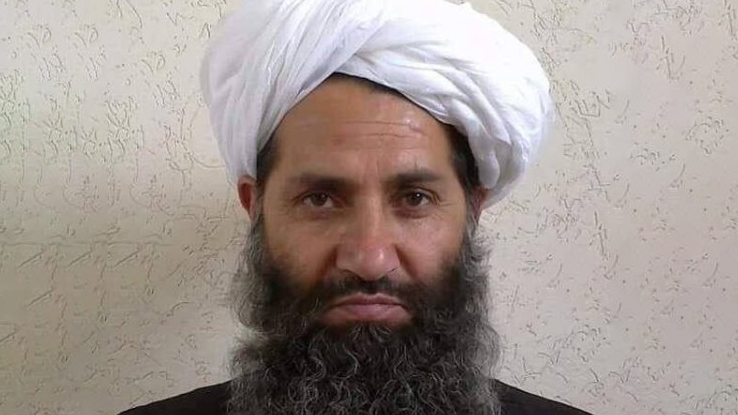KABUL, Afghanistan — Taliban broadcast a speech attributed to their leader, Hibatullah Akhundzada, on the first day of Eid, where he reiterated calls for readiness to carry out “suicide attacks”, a method widely used during the twenty years of the Republic era in Afghanistan against both military and civilian targets.
The remarks by the Taliban leader have sparked controversy.
Suicide bombings have been among the bloodiest tactics employed by the Taliban, who uniquely incorporate units of suicide attackers within the official framework of their Ministry of Defense.
Taliban released Akhundzada’s speech on Wednesday, April 10, marking the commencement of Eid.
Two residents of Kandahar, who attended Eid prayers at the Eidgah Mosque in the province, confirmed the Taliban leader’s presence and that he led the communal prayers.
In his speech, Akhundzada said, “Today, sacrifice as you have comfortably done before. Do not retreat.”
He urged past suicide bombers to be ready to “fight” as before, stating, “In the time of comfort, attack suicidally as you have done in the past.”
People across the country expressed concerns that these remarks reflect the Taliban’s unchanged autocracy and selfishness.
“Now he is promoting suicide attacks on his own people. What meaning does this have?” a Kabul resident said.
Taliban spokesman Zabihullah Mujahid claimed that Akhundzada’s words have been misinterpreted. According to Mujahid, the leader’s call was metaphorical, urging resilience and sacrifice akin to that of past suicide missions.
“It wasn’t meant like that,” Mujahid explained. “Sheikh Sahib (Akhundzada) meant that just as you had sacrificed your lives for defense previously, now you must sacrifice and strive harder for the country.”
Concerns over security threats from rival groups appear to be growing among the Taliban, who alongside al-Qaida, pioneered suicide attacks in Afghanistan. Last year, Sirajuddin Haqqani, the acting interior minister of the Taliban, claimed that over 1,500 suicide attackers had conducted bombings under his authorization.




